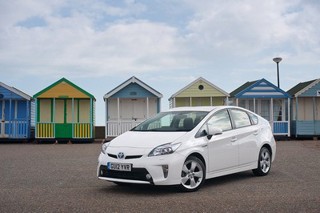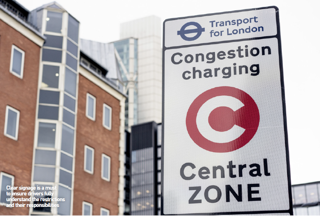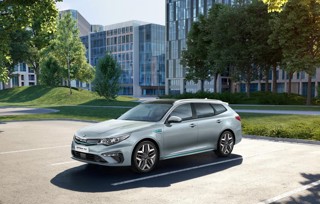Plug-in and hybrid electric vehicles (EVs) accounted for one in 20 cars sold in 2018, with plug-in hybrids increasing by almost 25% year-on-year.
However, problems getting models through the new emissions-testing regime and global demand outstripping supply, suggest that figure could have been higher still. In fact, the pace of growth of plug-in cars in the UK (21.8%) has now fallen significantly behind the EU average of 40%.
UK fleets have faced long factory lead times for some models, with the Hyundai Kona Electric, for example, taking up to 10 months.
Registration figures from the Society of Motor Manufacturers and Traders (SMMT) also highlight the impact of a reduction in Government incentives.
Plug-in hybrid electric vehicle (PHEV) registrations were up almost 30% in the first 10 months, but year-on-year increases fell to 3.1% and 8.7% in November and December, respectively, after the plug-in car grant was cut.
While changes to the grant will have played their part in the rate of registrations, leasing companies say long factory lead times have also hampered uptake.
John Webb, principal consultant at the UK’s largest leasing company Lex Autolease, told Fleet News: “Some of the newer, higher range EVs are being released to the UK market in very limited volumes, which can mean they come with a 10-12-month lead time, compared with 10-12 weeks for a traditionally-fuelled alternative.”
This has also been compounded by changing customer requirements, added Webb. “Previously, orders for EVs tended to be for one or two pool cars, whereas now customers are interested in ordering large numbers,” he said. “Where manufacturer production schedules are limited or models are being released in quotas across markets, this is bound to create lead time delays.”
It is a mixed picture, with some models more difficult to source than others. Tusker operations director Kit Wisdom explained: “We’ve found in the past few months that manufacturer lead times for a number of the most popular electric vehicles have reduced quite significantly.
“The Nissan Leaf was six-to-nine months, but is now around three months; the Renault Zoe was six months and is now three; and the (BMW) i3 is now only around two months, which is comparable to petrol or diesel car lead times.
However, Wisdom acknowledged: “When it comes to new models, substantial lead times remain. The Jaguar I-Pace is around 11 months for delivery and the long awaited Tesla Model 3 is still only expected at some point in 2019.”
Nick Hardy, sales and marketing director at Ogilvie Fleet, described lead times for the newest EVs as “horrific” and blamed the Worldwide harmonised Light vehicle Test Procedure (WLTP) – for a shortage of PHEVs.
“The availability (of PHEVs) has been absolutely destroyed by the WLTP emissions testing,” he said.
In a survey of dealers serving the top 11 plug-in manufacturers con-ducted by the National Franchised Dealers Association (NFDA), availability of product recorded the lowest average satisfaction score. Toyota retailers had the highest rating, just above Mitsubishi, while Peugeot dealers were ranked lowest, followed by Renault.
Hardy also believes, because of the price premium of EVs, it is hard to make them available to all company car drivers on choice lists.
However, Cap HPI suggests leasing costs of battery electric vehicles (BEVs) have been falling throughout 2018 (fleetnews.co.uk, January 8).
Its data experts looked at five of the best-selling models in the UK and discovered that monthly leasing costs had fallen 9.5% on average.
The UK’s best-selling electric car, the Nissan Leaf, saw monthly leasing values fall by 6.6% between January and November 2018. Monthly prices for the Renault Zoe fell by 16% between June and November.
In the 12 months up to November 2018, the BMW i3 saw leasing prices drop 9.2%, and the Volkswagen e-Golf 14%. Jaguar’s I-Pace saw the smallest price drop, with a fall of only 1.7% since April 2018.
“As manufacturers shift the focus of their assembly lines away from traditional engines and onto EVs, volumes will increase,” said Webb.






















Login to comment
Comments
No comments have been made yet.